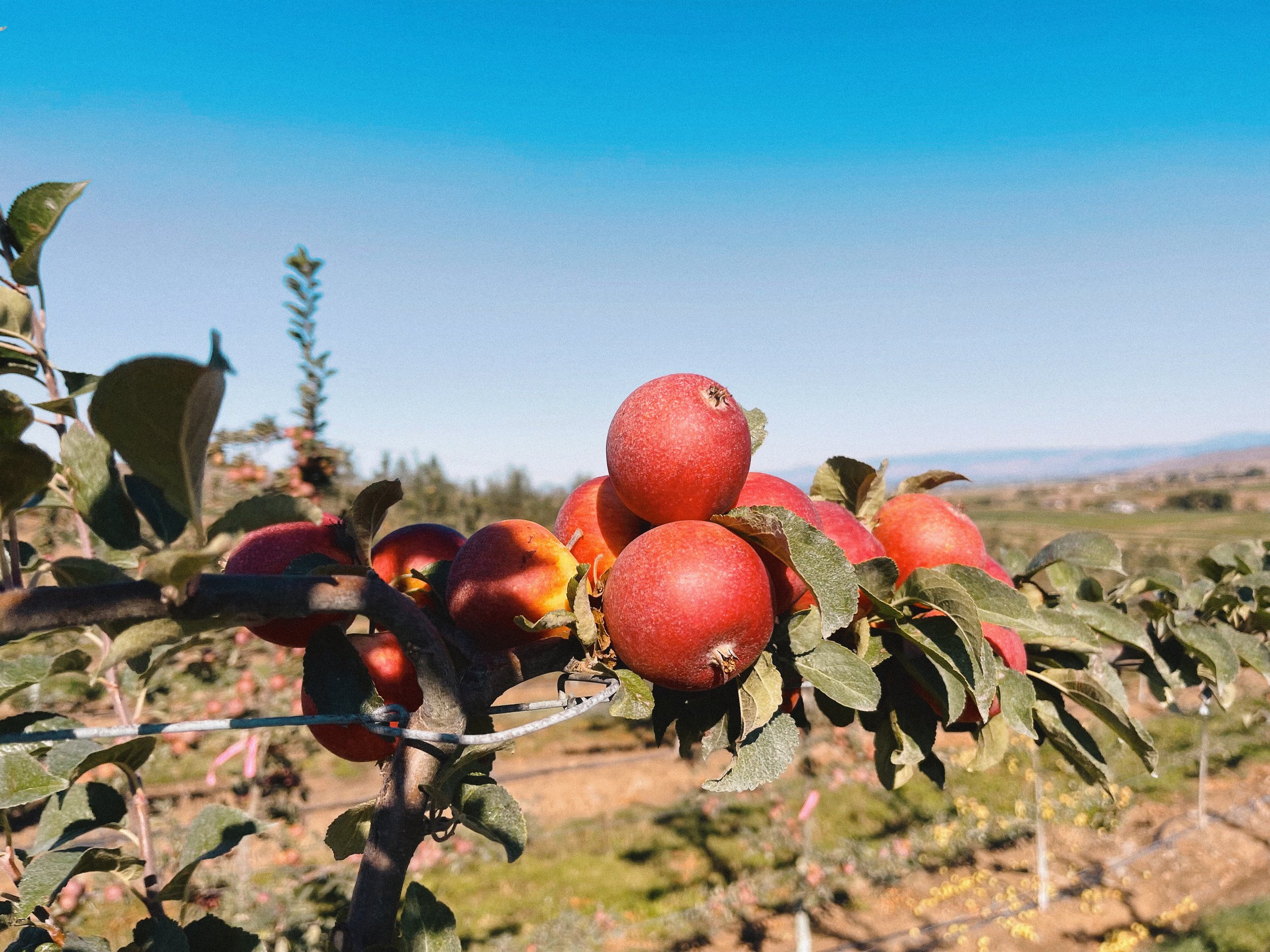
OUR ORCHARD
Wheel Line Cider has a small onsite orchard dedicated to cultivating, nurturing, and promoting old world heirloom varietals! Our focus is specifically on the bittersweet varietals also fondly known as "spitters". The tannin levels in bittersweet are what create a dry "body" or crisp profile in the cider. Our 7 acre orchard has 23 different French, English, Crab varieties, with 3,000 trees and counting, it is our hope that by cultivating these special apples, we will be able to elevate, educate and introduce our friends to different elements used to create cider.
Apples have stood the test of time, moving and adapting through the different regions it traveled through, finding its way across the world as trade and conquests occurred. It is said that the earliest apples were identified as early as 2000 BC in southern Kazakhstan. As apples have traveled forward in history, the varieties have evolved; terroir, cross-breeding, historical events and more have played their respective parts. You can’t have cider without apples, and you can’t have apples without history!
Colonists brought their taste for cider with them when they moved to the new world. They brought seedlings and trimmings to plant so that they may continue the tradition of cider, in some cases, cider was safer to drink than water! The seedling and trimmings evolved based on its ability to grow and adapt, thus the American apple varieties were born. These American varieties were still fairly bitter, leading us into the conversation of what kind of apples do you use for cider?
The truth of the matter is that you can ferment any kind of apple and make cider, however, the most revered apple to create cider with is the bittersweet apple. Bittersweet apples (Michelin, Harrison, Yarlington Mill, to name a few), are fondly referred to as “spitters”, they generally have low acid and high tannins. A tannin provides a bitter and/or astringent flavor that leaves the mouth feeling dry, it can provide an unparalleled complexity and depth to a cider making the drink itself more interesting.
Our farm orchard is dedicated to finding bittersweet/sharp varieties that grow exceptionally well in our terroir. The orchard itself sits on a hillside at the top of our farm in soil that is fairly dry, full of rocks and Caliche, and then add in the wind and you have a recipe for a semi volatile growing environment! This is where science and horticulture studies plays a huge role in the how we are able to cultivate these wonderful trees in our area. Grafting (taking a twig from one specimen and attaching it to a rootstock), has allowed us to take cuttings called scions from our desired tree and attach it to a new, hardier rootstock that we know flourishes in this type of environment. The majority of our varieties are grafted onto rootstock M-111, which is a hardy, semi-dwarf rootstock that will keep our trees relatively small. We then trellis and train the tree branches in the hopes it will give these trees a fighting chance against our sometimes, branch breaking winds!
Our Varietals
Our English varieties: Major, Campfield, Harrison, Yarington Mill, Ellis Bitter, Somerset Redstreak, Stoke Red, Tremlett Bitter, Chisel Jersey, Harry Masters Jersy, Redstreak.
Our French varieties: Nehou, Michelin, Muscat de Bernay, Amere de Berthecourt, Muscat De Peppe, Frequent Rouge, Domaine, Dabinett, Medaille D’or Noel de Champs, Reine de Pomme, Binet Rouge.
American Varieties: Golden Russet
Crab Apples: Siberian Crab, Red Vein Crab, Hewes Virginia Crab, Manchurian Crab.
Pear Varietals: Barland, Brandy, Andre Huffcap and Warren

